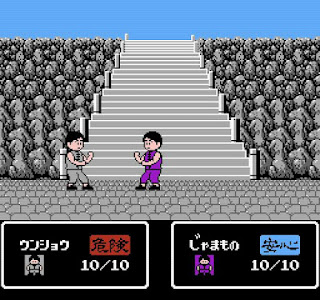So here is the "official" post announcing Chrontendo Episode 45. As detailed earlier, my computer is having issues, but I was able to successfully render and upload
Ep. 45 on Youtube. The
fancy 60 fps h264 version is now available on Archive. In a day or so, I'll put up an MKV version for those of you into the kinky stuff.
I was working on my PC today and at this point, I've narrowed it down to the hard drive or the Windows install. I had Windows 7 installed on an SSD. I'm not sure how stable SSDs are at this point. Mine is from Crucial, whom I thought was pretty reliable, but if I need to replace it, I might go with something else. For the time being, I popped in a different hard drive using the same SATA cable as the old drive and made sure everything was working normally. Then I installed the video card drivers to rule that out as an issue. At this point, everything is running smoothly. Tomorrow, I do a fresh Windows install on the old drive, which will determine whether its the problem is in the drive itself. I'm glad there doesn't seem to be anything wrong with the motherboard, since that would be the most work to replace. On the other hand, if the graphics card was the problem, that would have been a really good excuse to get a better card. Maybe I'll replace it "just in case."
Skyrim at 80 fps, here I come!*
Thanks to everyone how offered advice, help, etc. I must say that I'm always amazed at the fine caliber of people who read this blog. Sometimes, after reading comments on Chrontendo, I force myself to read comments on Yahoo News, just remind myself how truly awful humanity is.
The big bonus feature this episode is a look at the tangled history of
Tetris, leading up to the release of Tengen's
Tetris for the NES. In case you don't know the story, Tengen, the division of Atari Games responsible for releasing NES carts, published a port of
Tetris in mid 1989. They were taken to court by Nintendo, who also claimed the US rights for
Tetris on the NES. The result was Tengen's version being pulled from the shelves almost immediately after it was released, and Nintendo publishing their own NES
Tetris later in the year.
Tetris was just one of several legal battles between Atari and Nintendo in the 80s/90s, but the results were quite devastating for Atari.
I declare Tengen's
Tetris to be Episode 45's MVP game. I like it quite a bit better than Bullet Proof's Famicom
Tetris (covered in episode 40), which had a weird control scheme. The
Tetris cart released by NOA later in 1989 was pretty decent, but lacked some of the features of the Tengen version, such as two-player head-to-head. The Tengen game is generally regarded as the best of the three.
The other 'big' game (though not necessarily a
great game) is Konami's
Teenage Mutant Ninja Turtles, or
Gekikame Ninja Den in Japan, or
Teenage Mutant Hero Turtles, in Europe. Europe generally dislikes ninjas for some reason. This game is not based on Konami's famous arcade beat-em-up with the same title. Instead it's a side-scrolling action platformer, with bits of top-down action thrown in. It resembles Konami's earlier
Getsufuu Ma Den in some ways. Konami was probably in a bit of a rush to develop this thing, and as a result, the game isn't up to the same standards set by other huge Konami hits like
Contra or
Castlevania. Naturally,
TMNT sold like hotcakes, though it now lives in the shadow of its much better sequels.
Also in Ep. 45, we get a decent baseball game from SNK.
Baseball Stars/
Baseball Stars - Mezase Sankanou!! is a realistic style simulation game, in which you create teams, leagues, earn money from games, hire and fire players. There are tons of baseball games for the Famicom/NES, and I'm getting quite tired of them, but
Baseball Stars is pretty impressive. A few years later it would get a sequel on the Neo-Geo.
Even Capcom is cannot resist the popularity of RPGs on the Famicom. Earlier, we saw a Japanese style adventure game from Capcom,
Samurai Sword. Now we have the
Dragon Quest inspired
Tenchi o Kurau/
Destiny of an Emperor. Instead of the typical fantasy setting, Capcom has licensed the rights to a manga based on
The Romance of the Three Kingdoms. The most unusual thing about
Destiny is the amazing number of recruitable party members - around 100! Most of them are quite worthless, and there is no attempt to give any of them any sort of back story or personality (unless you are familiar with the source material.) I can't quite call
Destiny a complete success, the fact that there is really only one type of enemy (soldier dudes) makes random battles a bit dull, but it is otherwise an ambitious and forward thinking game.
Another game that I couldn't like as much as I wanted to is Culture Brain's
Little Ninja Bros. The Japanese little,
Super Chinese 2, reveals its status as a sequel. The first game, an arcade port known as
Kung Fu Heroes in the US, was covered in Chrontendo Episode 9. The sequel takes the first game and uses it as the basis for the random battles, while building an RPG around it. Just like Culture Brain's earlier
Magic of Scheherazade,
Little Ninja Bros features lots of colorful characters. funny dialog and great artwork. It also has a really great musical post-credits sequence.
Quinty/
Mendel Palace, or "Mendel's Palace" as I call in this episode, is notable for the being the first game developed by Game Freak, future creators of
Pokemon. It's a very good action/puzzle game. The Japanese release was by Namco; over here, it was published by Hudson. Neither the Japanese nor the US name makes any sense.
The Bad:
There is really nothing too terrible in Episode 45. Or maybe I'm just feeling more generous as I get older. A few games should be singled out for being really ugly.
Meitantei Holmes: M-Kara no Chousenjou
Almost immediately after
A Week of Garfield, we are treated to another Towachiki game. This is the third Sherlock Holmes from Towachiki, and the second to fit snugly into the
Portopia clone genre. It's a little better looking than its predecessor, but this is still falls near the bottom of the Japanese murder mystery adventure game pile.
La Salle Ishii no Child's Quest
Released only a couple days before
Quinty, this is a wacky Namco-published RPG based around a Japanese media/TV personality named La Salle Ishii. Also called Lasa-R Ishii or Rasaaru Ishii
, in this game he manages a one boy, two girl pop band. In order to make it big, the band travels around a
Dragon Quest style overworld and engages in random battles with innocent civilians and police officers. Well, you don't literally fight these people, but rather try to win them over to your cause. Maybe you should just check out the
Quinty/Child's Quest trailer.
Other games:
Datsugoku/
P.O.W.: Prisoners of War
I really wanted to like this game, a beat-em-up from SNK. It could be described as
Rush'n Attack crossed with
Double Dragon. I was not able to get past the impossible second boss, so I'm withholding judgement on this game.
Famicom Tantei Club Part II - Ushiro ni Tatsu Shoujo
Nintendo is just about the only major publisher still releasing FDS games at this point. Even so, they are now only using the FDS for their adventure games. This is a prequel to the first
Famicom Tantei Club and was popular enough to get a Super Famicom remake years later. It was produced by Gunpei Yokoi and was co-developed by Tose.
Kabushiki Doujou
Speaking of Tose, they did the artwork for this stock market simulation game from Hect. At least Hect has a sense of humor about the subject: your stock market master is a white bearded old guy who looks more appropriate for a Karate doujou than a stock market doujou.
Big Challenge! Go! Go! Bowling
The fourth and final entry in Jaleco's ill-fated "Big Challenge" series of FDS games. The first three were sort of lame as well: we had a Sumo game, a very simple shoot-em-up, and a wild west themed horizontal run-and-gun. This one is a passable bowling game.
Kaettekita! Gunjin Shogi: Nanya Sore!?
Another game with excessive punctuation in the title. "Gunjin" shogi is a variant of shogi played with the tiles upside down. It pops up in video game form in Japan from time to time. As an astute commentor pointed out, its clearly related to the game known in the west as Stratego and in China as Dou Shou Qi. Among your opponents will be a gangster wolf and a beret-wearing Hitler.
SD Gundam World: Gachapon Senshi 2 - Capsule Senki
Earlier in 1989 we saw a fake sequel to SD Gundam World, the "Map Collection" for the FDS. We finally have a real sequel, but its more of less the same game. One improvement is that its now on a cartridge and thus missing the long loading times. For those with short memories, the SD Gundam Gachapon games are irritating military tactics games.
Murder Club
We barely cover this murder mystery adventure game, since it received a fancy port to the PC Engine a little later. That version even came out in the US as JB Harold Murder Club. I will point out the game was designed by one Rika Suzuki. She's still around today, making games for Cing like Hotel Dusk: Room 215 and Trace Memory.
What's up next, you ask? Chronsega episode 7, which will see a major change to the Chronsega series.
*Just kidding. There's no way I'll ever have time to play
Skyrim.









































